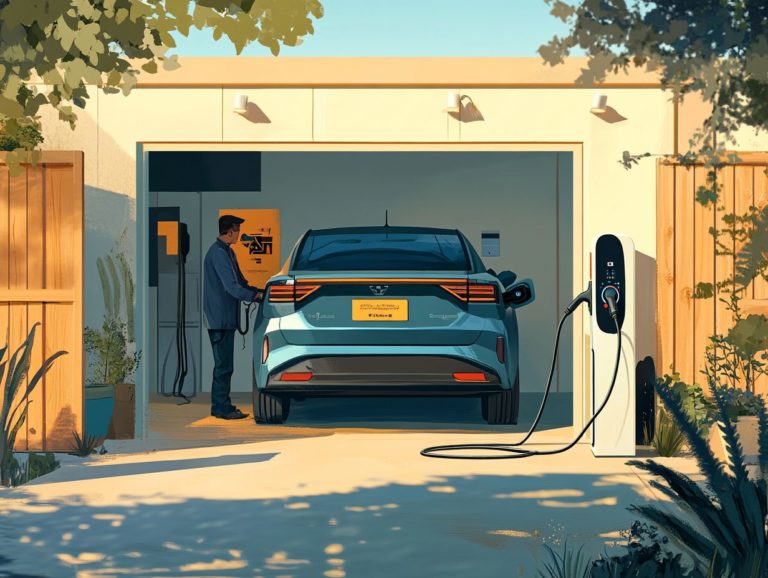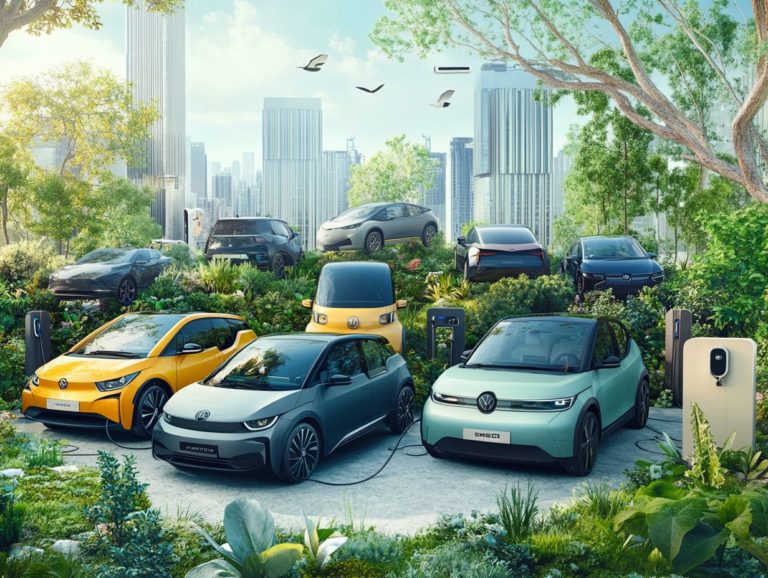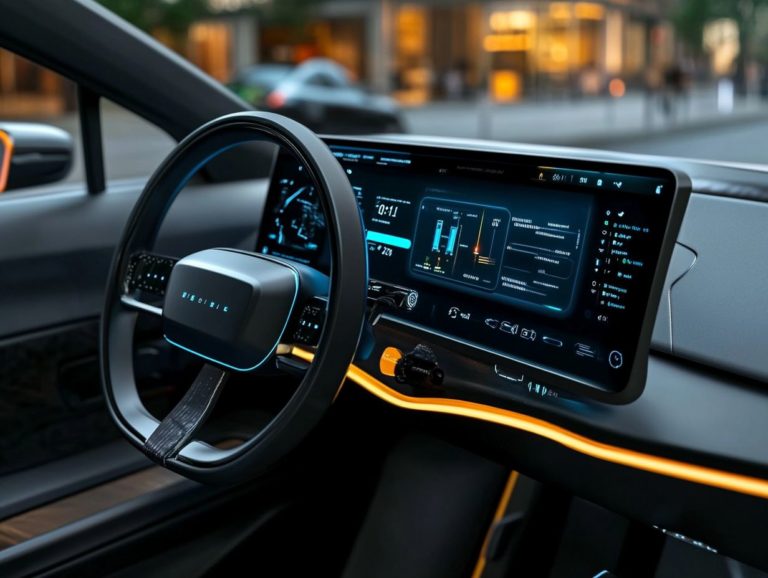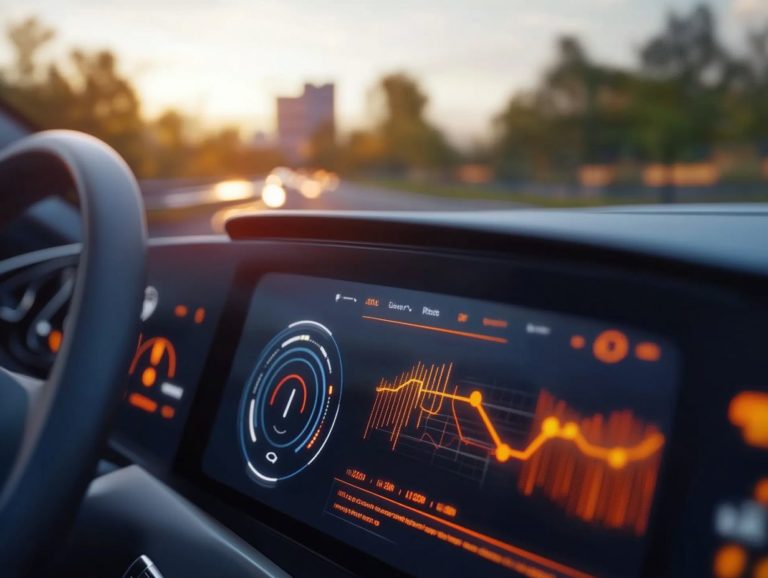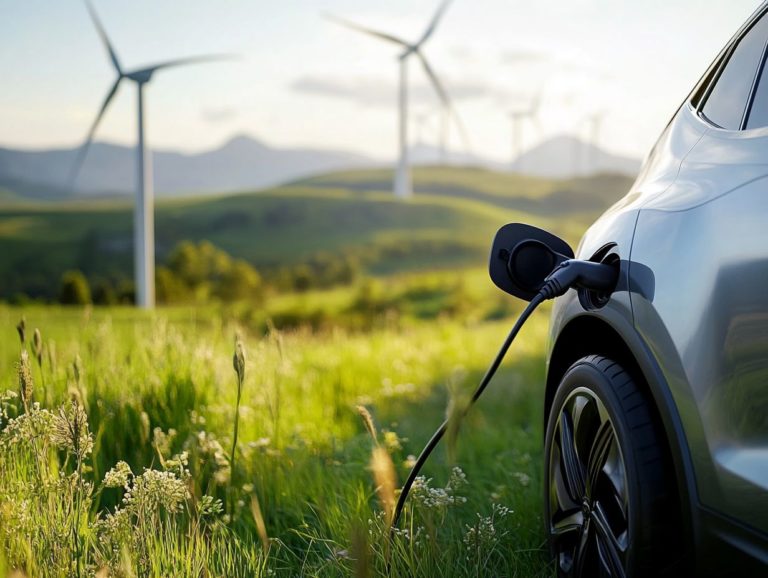how does cold weather affect ev performance?
Winter is coming! Are you ready for how it might affect your electric vehicle’s performance?
We’ll explore how cold weather affects your EV’s battery capacity, range, and heating systems.
You’ll also find practical tips for optimizing your vehicle’s performance during those chilly months, including charging strategies and driving techniques.
Stay informed to ensure your EV operates seamlessly, regardless of the weather!
Contents
Key Takeaways:
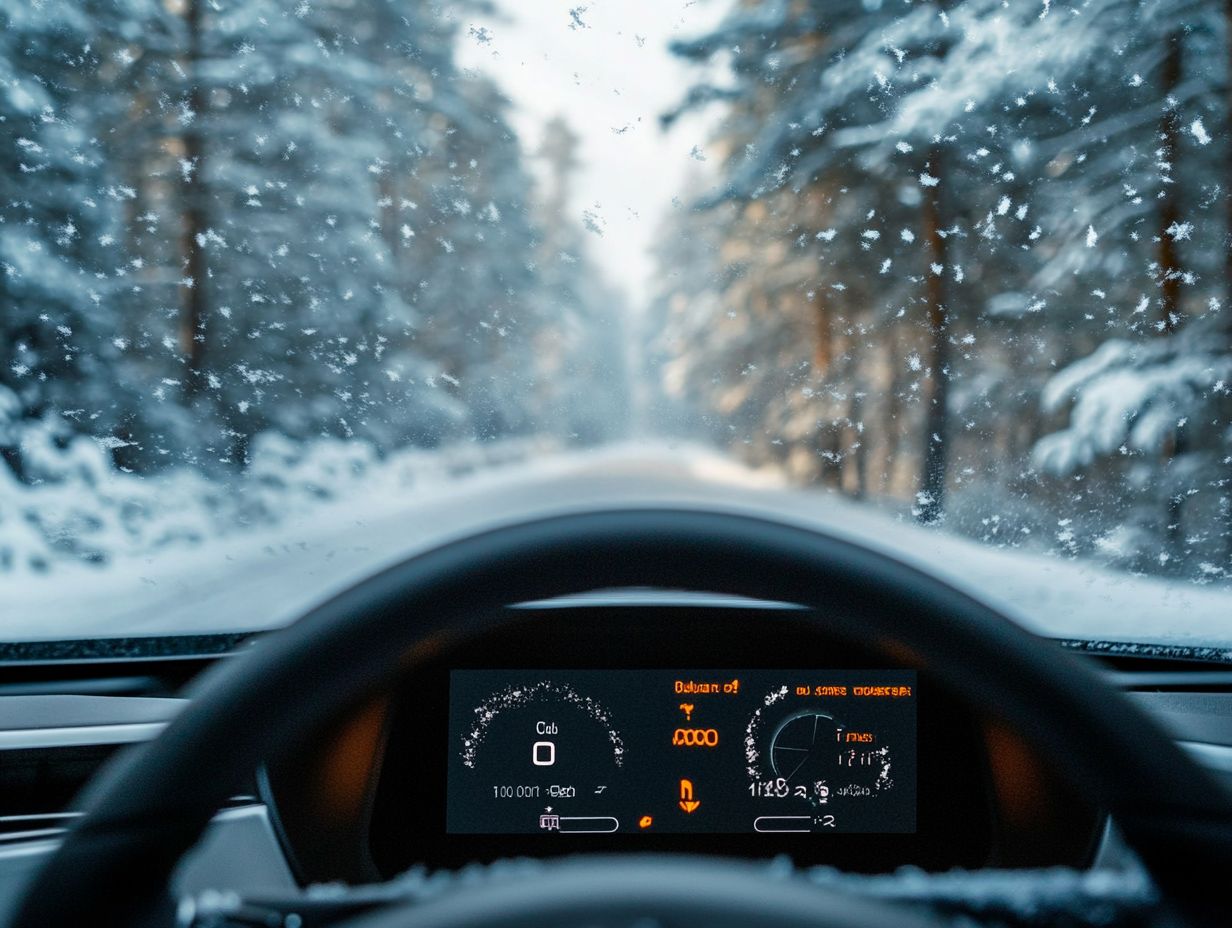
- Cold weather can significantly impact electric vehicle performance.
- Battery capacity and range may decrease.
- Heating and defrosting systems can consume more energy.
- Proper preparation and maintenance are essential.
- Adjusting driving techniques can enhance performance.
- Be mindful of charging speed in cold weather.
The Relationship Between Cold Weather and EV Performance
Cold weather can negatively affect both battery range and overall vehicle performance.
During winter, lower temperatures can lead to range loss due to chemical reactions in batteries. Understanding these dynamics is crucial to alleviating range anxiety.
By grasping how cold impacts electric vehicle performance especially battery management you can navigate colder climates with confidence.
Understanding the Impact of Temperature on EVs
Temperature plays a key role in the performance and efficiency of electric vehicles, particularly in colder climates.
Battery performance is sensitive to low temperatures, leading to reduced range and increased energy use for cabin heating.
Cold weather can reduce battery range by up to 40% at 20 F due to decreased efficiency in lithium-ion batteries.
To address these challenges, manufacturers have developed advanced thermal management systems. These systems help maintain optimal battery conditions and allow you to warm the battery and cabin while plugged in.
By taking these steps, you can enhance range retention and optimize energy efficiency during colder months.
Factors Affecting EV Performance in Cold Weather
Several factors influence electric vehicle performance in cold weather, particularly battery capacity and winter range.
As an EV owner, understanding these elements is crucial to managing your energy consumption and ensuring the best driving experience during colder months.
Battery Capacity and Range
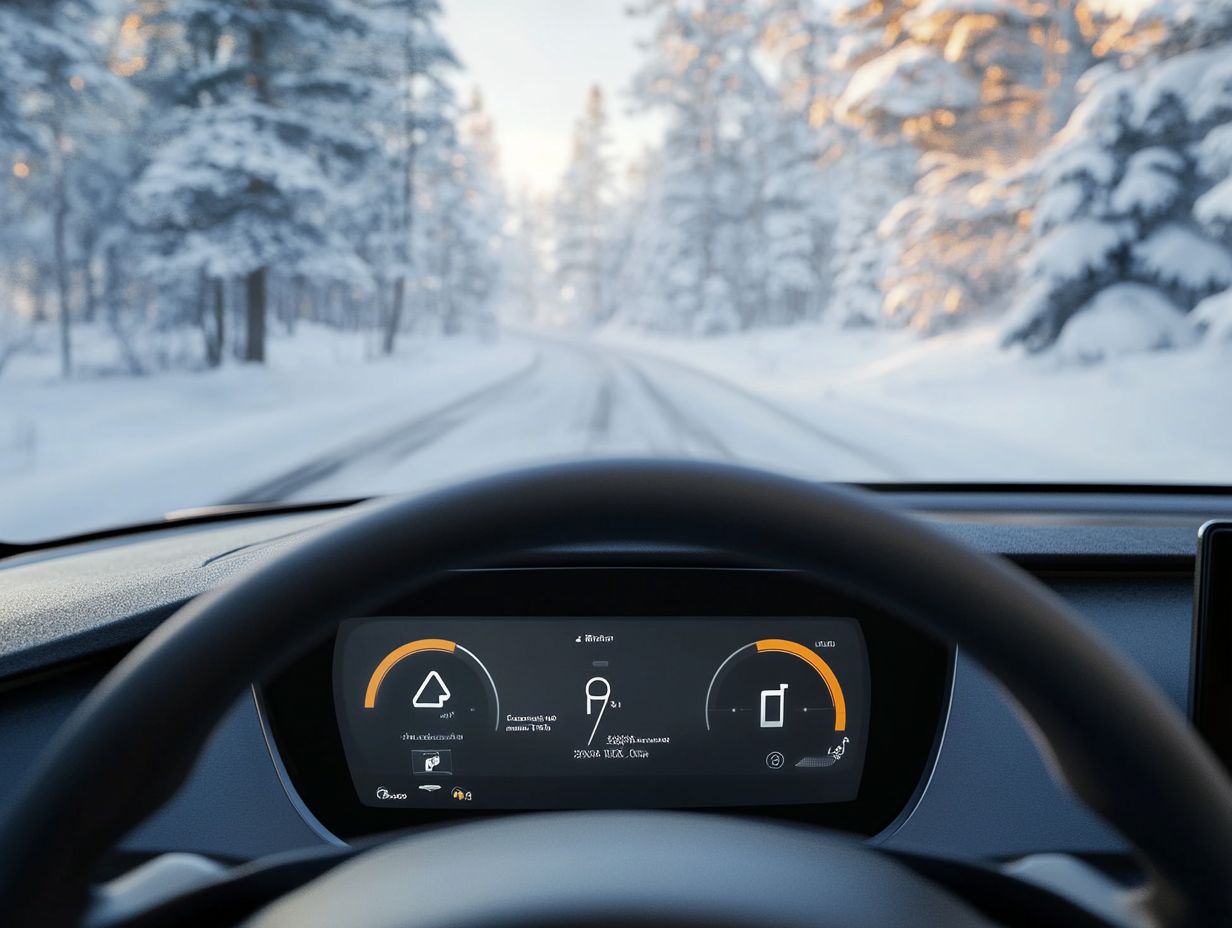
Battery capacity is crucial for determining the range of electric cars. When cold weather arrives, performance can dip due to chemical reactions in the battery cells. If you own an EV, you might see your range drop significantly in winter, raising valid concerns about driving capabilities and overall efficiency.
Research shows that when temperatures drop below freezing, the effective capacity of lithium-ion batteries commonly found in electric vehicles can diminish. For instance, a study by the American Automobile Association (AAA) found that electric vehicles could lose up to 40% of their range in extreme cold.
Even well-regarded models like the Tesla Model 3 and the Chevrolet Bolt face this issue; drivers often report a range reduction of about 20-30% in winter conditions. In regions like Canada and the northern United States, many travelers share their struggles to complete planned trips, highlighting the pressing need for improved winter range management.
Reports show that strategies like pre-conditioning batteries and using eco-driving modes can help alleviate some of these challenges. However, the real-world implications of low temperatures remain a significant factor for anyone considering an electric vehicle.
Heating and Defrosting Systems
Heating and defrosting systems in electric vehicles are essential for your comfort and visibility in cold weather, yet they can also increase energy consumption.
Many modern electric vehicles use advanced technology, like heat pumps, to enhance efficiency while keeping the cabin cozy. These systems significantly influence energy usage, directly impacting battery life and overall range.
Take, for example, the comparison between the Audi e-tron and the Hyundai Kona. Observing their different heating approaches reveals how performance can vary. The e-tron features a sophisticated heat pump system that captures waste heat from the battery and motor, resulting in less strain on the battery.
In contrast, the Kona relies more on traditional resistive heating, which can be quite energy-intensive. This analysis shows that heat pumps provide superior efficiency, significantly reducing the load on batteries when temperatures drop.
Tips for Improving EV Performance in Cold Weather
Enhancing electric vehicle performance in cold weather requires you to implement strategic tips designed to boost driving efficiency and reduce range loss.
By embracing practices like preconditioning and refining your driving techniques, you can greatly elevate your winter driving experience.
This approach not only optimizes your vehicle’s capabilities but also connects you with the larger EV community, enriching your journey as an electric vehicle owner.
Preparation and Maintenance
Proper preparation and maintenance are essential for electric vehicle owners, especially when optimizing performance during chilly winter months. Implementing a winter weather package and ensuring all systems are in top condition can help you tackle these challenges head-on.
Taking proactive steps boosts your vehicle’s efficiency and extends its lifespan. This is increasingly crucial, as harsh winter conditions can dramatically affect your EV’s range and overall performance. Regularly check tire pressure, battery health, and the heating system, since colder temperatures can reduce battery efficiency. Models like the Tesla Model 3 and the Ford Mustang Mach-E even come with specialized winter packages to help you navigate winter driving challenges.
To prepare, follow this checklist:
- Verifying battery status
- Ensuring adequate tire tread
- Inspecting brakes
- Checking fluid levels
All these steps aim to optimize your winter performance. Don’t wait until winter hits! Prepare now to ensure your EV performs at its best.
Driving Techniques
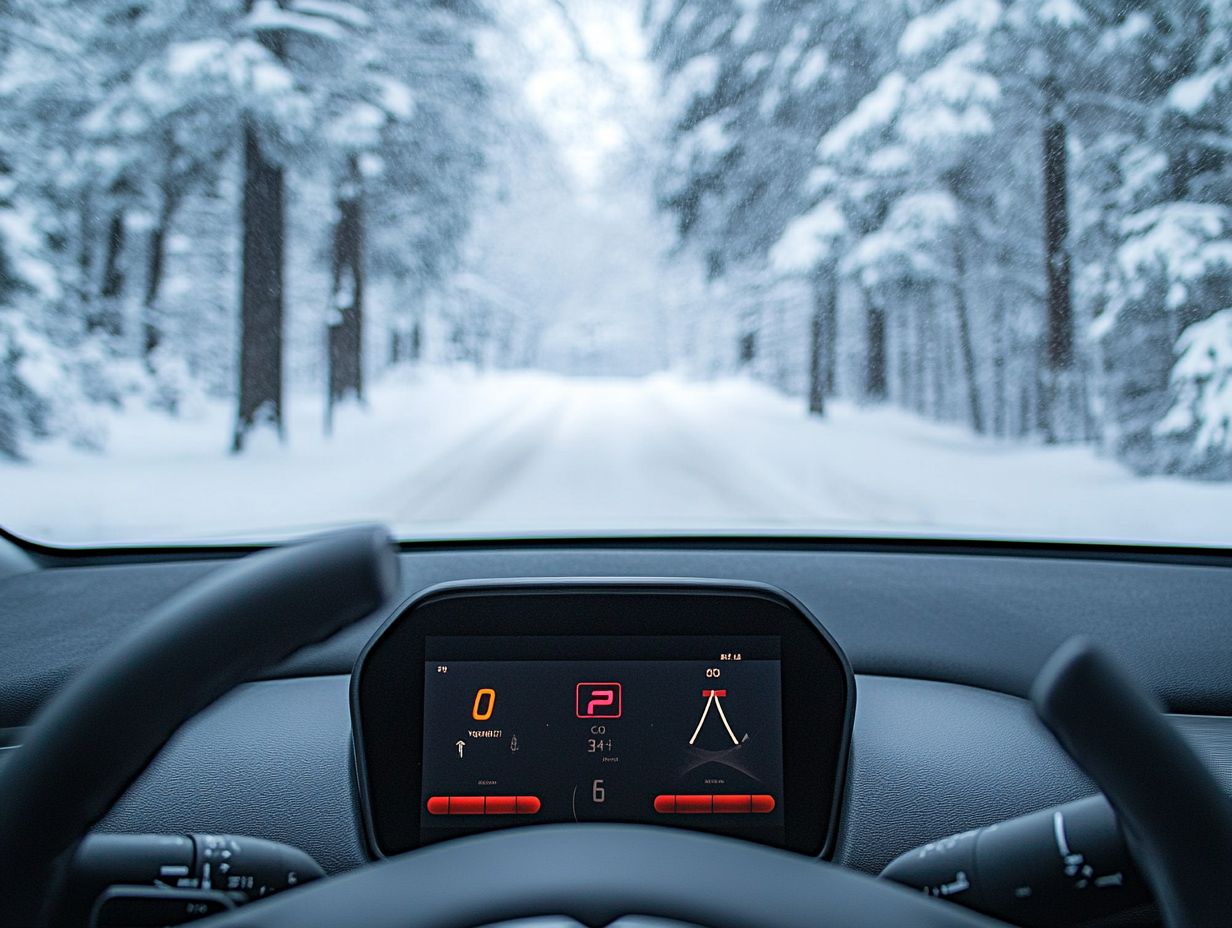
Effective driving techniques boost your electric vehicle’s energy efficiency in winter. Facing winter challenges? Here s how to tackle them!
Utilizing regenerative braking, which helps recharge the battery while slowing down, and making a few adjustments to your driving habits can maximize your battery range and alleviate range anxiety. For example, gentle acceleration significantly reduces energy consumption, especially in models like the BMW i3, where sudden starts lead to swift energy depletion.
Gradually increase your speed to allow the vehicle to ease into higher velocities. A strategic approach to regenerative braking helps recover energy during deceleration, which is particularly beneficial in the Kia EV6, known for its advanced regenerative capabilities.
Maintaining optimal speeds typically between 45-65 mph not only improves aerodynamics but also helps sustain battery efficiency. Combining these techniques leads to a reliable and efficient driving experience throughout the colder months.
Charging Considerations in Cold Weather
Charging electric vehicles in cold weather presents distinct challenges that impact both speed and efficiency. As an EV owner, understand how low temperatures influence electrical systems.
By adopting best practices, you can keep your vehicle charged and primed for winter driving, allowing for confident navigation during the season.
How Cold Weather Affects Charging Speed
Cold weather notably impacts the charging speed of electric vehicles. When temperatures drop, battery performance declines, resulting in increased energy consumption during charging. You might face longer charging times, which can be frustrating in winter.
This slowdown is linked to lithium-ion batteries, the type most electric vehicles use. When temperatures drop, the electrolyte inside the battery becomes less conductive, reducing ion flow and resulting in slower charging rates.
Research shows that charging times can increase by 20-40% when temperatures dip below freezing, varying by EV model and charger type.
For instance, while a Tesla Model 3 might take about 25 minutes to reach an 80% charge under optimal conditions, that timeframe could stretch to nearly 40 minutes in colder weather.
To counteract these effects, precondition your vehicle by warming the battery before charging. Utilizing high-powered chargers can also make a significant difference whenever possible.
Best Practices for Cold Weather Charging
Implementing best practices for charging electric vehicles in cold weather enhances efficiency and extends battery life, ensuring you are well-prepared for winter driving needs. Effectively using electric vehicle technology greatly improves your overall vehicle performance.
By understanding how temperature affects battery chemistry, you can adopt strategies tailored to the challenges of winter conditions. Consider using home chargers with built-in scheduling features for overnight charging when electricity rates are lower.
Be aware that many public charging stations now have advanced technologies to maintain optimal charging conditions, even in colder temperatures. To maximize your range, charge during mid-morning or early afternoon when temperatures are generally cooler, helping your battery achieve a more efficient charge.
Frequently Asked Questions
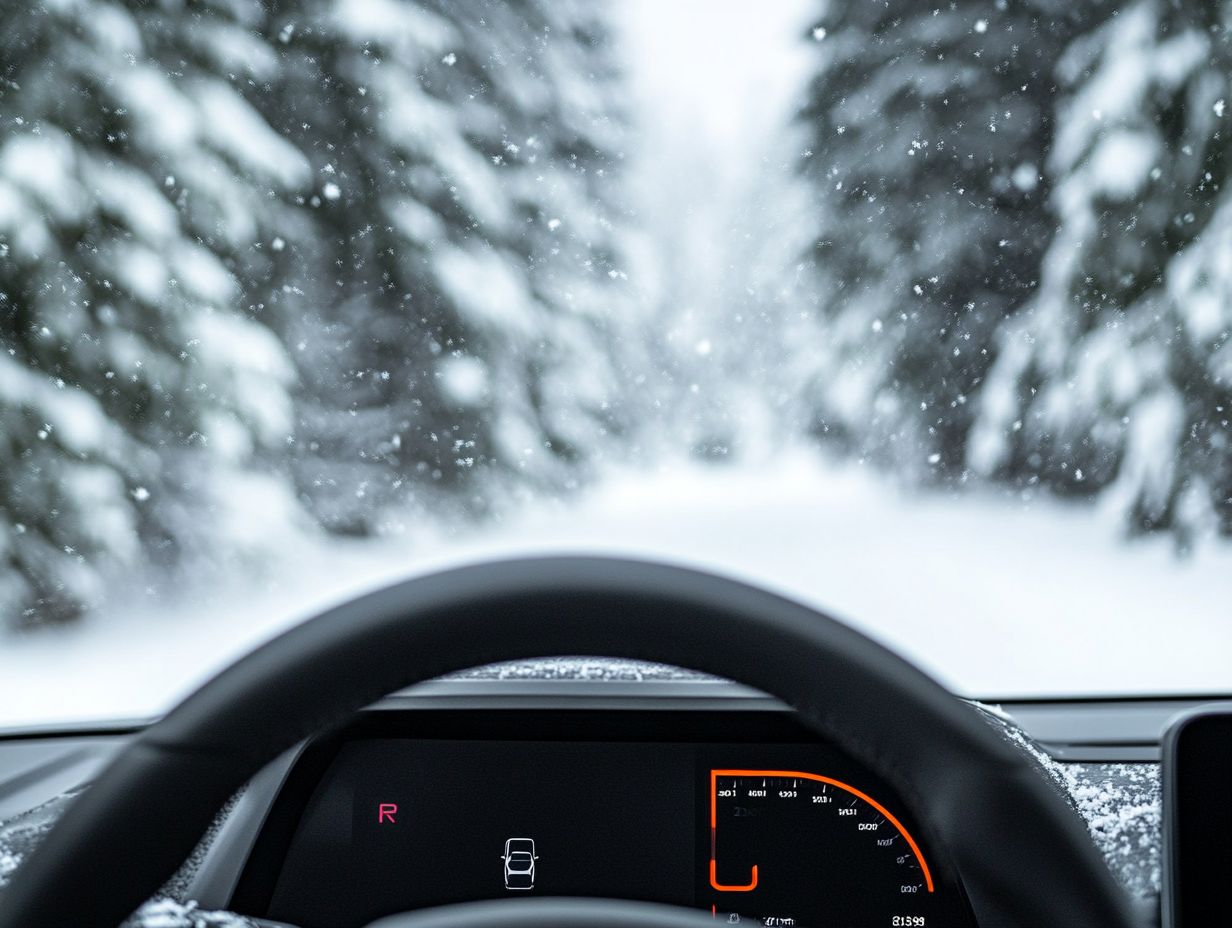
How does cold weather affect EV performance?
Cold weather can reduce range, slow charging times, and decrease battery efficiency.
Why does cold weather affect EV performance?
Cold temperatures cause the battery to lose its charge more quickly and make it difficult for the battery to hold a charge, reducing performance.
How Much Does Cold Weather Decrease EV Range?
Cold weather can significantly reduce the range of electric vehicles (EVs). On average, you might see a decrease of 20% to 40% in colder temperatures.
Can Cold Weather Damage the Battery of an EV?
Cold weather can impact how well an EV battery performs. However, it typically won t cause permanent damage unless the battery is exposed to extreme cold for a long time.
How Can I Improve My EV’s Performance in Cold Weather?
You can boost your EV’s performance by preheating the battery and cabin while it s plugged in. Keeping your car in a garage and minimizing heavy acceleration and braking will also help preserve battery life.
Are All EVs Affected by Cold Weather the Same Way?
No, different EV models react differently to cold weather. Some have advanced features, such as thermal management systems, that help maintain battery performance in chilly conditions.

